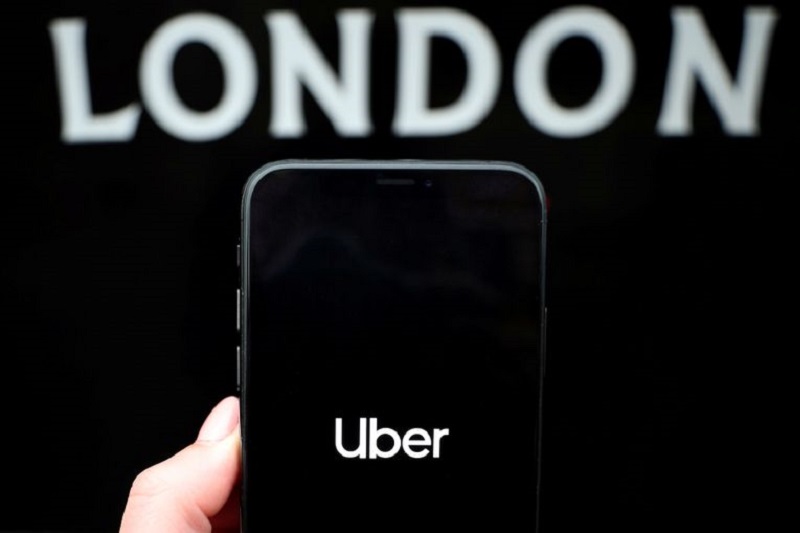SAN FRANCISCO - Uber Technologies, Inc. (NYSE: NYSE:UBER) has entered into a strategic partnership with autonomous vehicle company Cruise to incorporate Cruise's driverless cars into the Uber ride-hailing platform. The collaboration, announced today, aims to introduce a fleet of Chevy Bolt-based autonomous vehicles starting next year.
Uber riders will have the option to select a Cruise autonomous vehicle for their trips via the Uber app when the service becomes available. This initiative is part of both companies' broader efforts to enhance urban mobility with autonomous technology.
Marc Whitten, CEO of Cruise, expressed enthusiasm about the partnership, emphasizing the potential of driverless technology to improve safety and redefine city life. Uber CEO Dara Khosrowshahi also highlighted the significance of integrating autonomous vehicles into the Uber platform, stating it could play a critical role in the safe and reliable adoption of autonomous technology globally.
The partnership is expected to leverage Uber's extensive mobility and delivery platform, which has facilitated over 52 billion trips since its inception in 2010, and Cruise's focus on developing advanced self-driving vehicles. Cruise, which is majority-owned by General Motors (NYSE:GM) and has received investments from companies like Honda (NYSE:HMC) and Microsoft (NASDAQ:MSFT), has been conducting supervised autonomous driving tests in cities such as Phoenix, Houston, Dallas, and internationally in Dubai.
The announcement did not disclose the financial terms of the deal or the specific number of vehicles that will be deployed. As the companies prepare for next year's launch, they will be working to integrate Cruise's autonomous vehicle technology with Uber's ride-hailing service.
This news is based on a press release statement from Uber Technologies, Inc.
In other recent news, Uber Technologies Inc . reported significant growth in its second quarter of 2024. The company's gross bookings increased by 21% on a constant currency basis, and its adjusted EBITDA rose by a substantial 71% year-over-year. Citi recently highlighted Uber's performance, maintaining a Buy rating and increasing the price target to $98 from $96. The firm's analysis pointed out Uber's strong consumer engagement, with 35% of Monthly Active Platform Consumers utilizing multiple Uber products.
Uber's second-quarter results also revealed a robust demand trend in both the Mobility and Delivery segments, growing by 27% and 17% year-over-year, respectively. The company's CEO, Dara Khosrowshahi, noted ongoing discussions with global autonomous vehicle (AV) players to join its platform, indicating potential expansion in the AV market. However, AV is not expected to generate substantial profits in the near term.
The company's delivery business continues to be profitable, with growth driven by operational improvements and advertising revenue. Uber has also improved its category position in delivery in its top 10 markets. These are among the recent developments at Uber, which plans to expand into new geographies while maintaining its operating framework. The company targets mid to high teens gross bookings growth and 30% to 40% EBITDA growth over the next three years.
InvestingPro Insights
As Uber Technologies, Inc. (NYSE: UBER) gears up for its ambitious integration of Cruise's autonomous vehicles into its ride-hailing service, the company's financial health and market position remain critical factors for investors and stakeholders. According to the latest data from InvestingPro, Uber boasts a substantial market capitalization of $153.7 billion, reflecting its significant presence in the mobility sector.
While Uber's Price/Earnings (P/E) ratio stands at a high 75.47, it's worth noting that analysts have revised their earnings upwards for the upcoming period, as per one of the InvestingPro Tips. This upward revision indicates a positive outlook on the company's earnings potential, which may justify the high earnings multiple to some investors. Furthermore, Uber's Price to Earnings Growth (PEG) ratio is at a low 0.14, suggesting that the company's earnings growth rate could be undervalued relative to its P/E ratio.
InvestingPro Tips also highlight that Uber is a prominent player in the Ground Transportation industry and has seen a high return over the last year, with a 65.68% one-year price total return. This performance is a testament to the company's growth and investor confidence. Additionally, Uber operates with a moderate level of debt, which can be a reassuring sign for risk-averse investors.
For those interested in a deeper dive into Uber's financial metrics and strategic positioning, InvestingPro offers additional insights. Currently, there are 13 more InvestingPro Tips available on Uber, which can be accessed for a comprehensive analysis of the company's outlook and performance.
As Uber continues to innovate and expand its services, these financial metrics and expert insights can help investors stay informed about the company's trajectory and make more data-driven decisions.
This article was generated with the support of AI and reviewed by an editor. For more information see our T&C.
